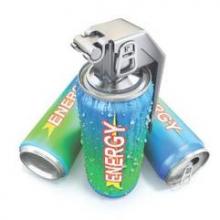Consumption of energy drinks. alcohol, or the combination increased risk of traumatic brain injury in adolescents, according to Gabriela Ilie, Ph.D., at St. Michael’s Hospital, Toronto, and her associates.
Of the 10,272 adolescents aged 11-20 years included in the study, 22% reported a history of traumatic brain injury (TBI). For adolescents who drank alcohol infrequently, the odds ratio (OR) for TBI was 1.98, and increased to 3.65 for frequent drinkers. The OR for adolescents who consumed at least one energy drink in the previous year was 2.04, and increased to 6.78 for those who had consumed more than five energy drinks in the previous week. For those who mixed energy drinks and alcohol at least once in their life, the OR was 1.71, increasing to 7.7 if mixed drinks had been consumed more than six times in the previous year.
The most common cause of TBI was from sports injuries, accounting for 46% of all TBIs. Sports-related TBIs were more common in males, accounting for nearly 52% of TBIs, compared with only 35% in females. Students with a grade average lower than 70% were significantly more likely to have sustained a recent or former TBI than were those with a grade average above 90%.
“The magnitude of the prevalence estimates and the associated risks identified within this representative sample support suggestions to reduce media advertising that promotes the use of energy drinks in sports, and to highlight the need to improve understanding of how these measures are linked,” the investigators concluded.
Find the full study in PLOS One (doi: 10.1371/journal.pone.0135860).


